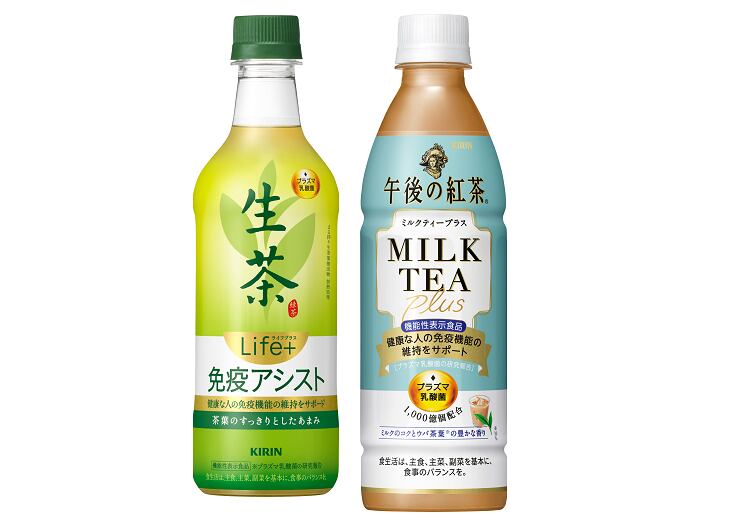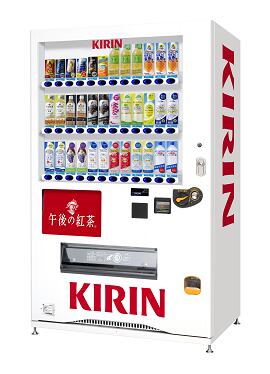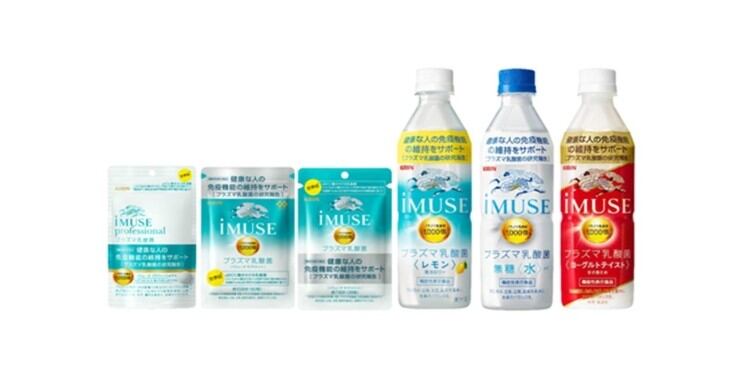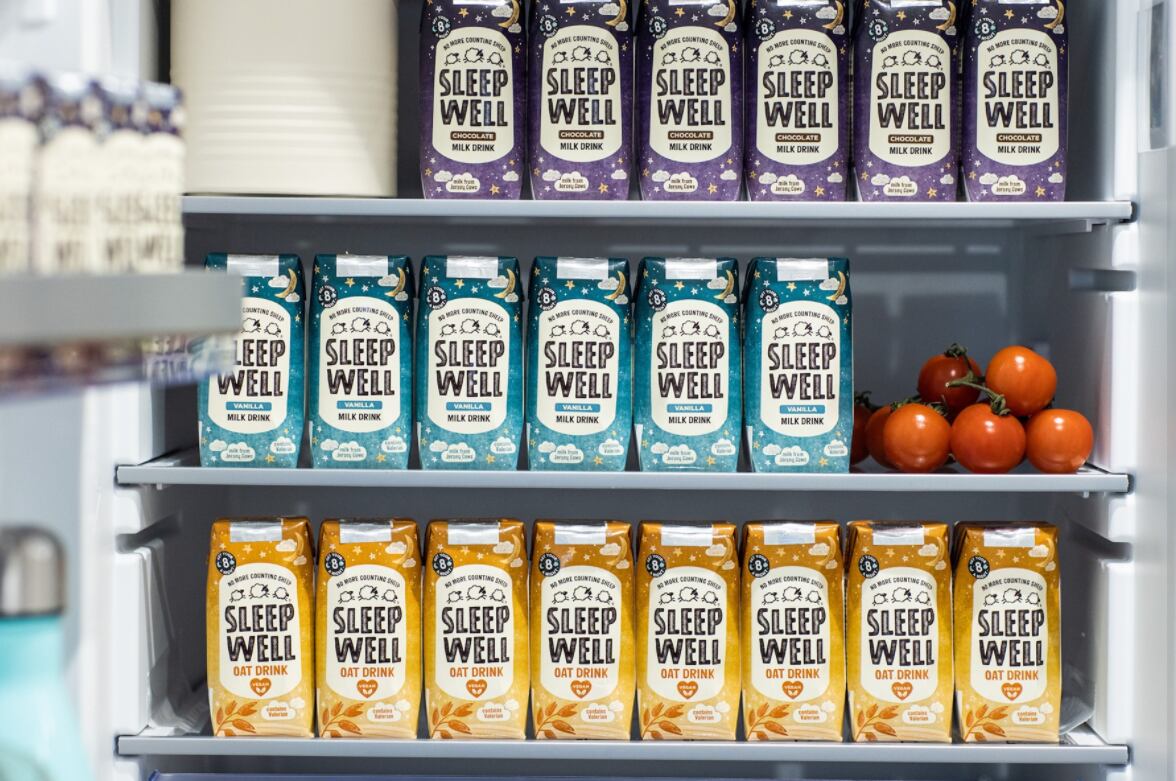Kirin Holdings, which consists of beverages, health supplements, and pharmaceuticals businesses, recorded six months revenues of US$864bn (US$7.8bn), down one per cent, while profit was JPY$37.5bn (US$342m), down 22.9 per cent, according to its latest financial report.
The brewery giant said revenue from its brewery business was up 4.4 per cent to JPY$300bn yen (US$2.7bn), while that of its non-alcoholic beverage business was down 3.8 per cent to JPY$115.3bn (US$1bn).
The decline in revenue mainly came from its carbonated beverage, water and tea segments, but growth was seen in its functional beverages arm.
The firm’s carbonated beverages reported a yoy 11.7 per cent decline in sales volume to 6.46m cases. Sales volume of water also dropped by 15.7 per cent to 17.2m cases.
Its bestsellers – black tea and Japanese tea – represented by the brands Gogo-no-Kocha and Nama-cha, declined by 5.4 per cent and 5.6 per cent respectively to 23m cases and 14m cases.
“Sales volume of core brands Gogo-no-Kocha and Nama-cha decreased from the previous year due to consumers’ self-restraint from going out and an increase in work-from-home,” the firm said.
Despite decline in its tea business, growth was seen in its functional beverages business, where sales volume increased by 13.7 per cent to 5.4m cases, while that of fruit and vegetable juice also went up by 7.2 per cent to 11m cases.
“Sales volume of LC-Plasma related products increased by 46 per cent due to the rise in consumer health awareness,” it said.
The firm is big on its proprietary ingredient Lc-Plasma used in its iMuse brand of functional beverages and supplements.
Of which, three beverages and three supplements under the brand were recognised as Food with Function Claims (FCC) by Japan’s Consumer Affairs Agency for claiming to support immune function in healthy people. The six products were launched in November last year.
Lc-Plasma was first discovered in 2010 and is said to work by stimulating the plasmacytoid dendritic cells (pDC), which in turn functions as the ‘commander-in-chief’ of the immune system.
With health and immunity on top of consumers’ mind, the firm said that it would be adding the Lc-Plasma ingredient into two tea products under the Gogo-no-kocha and Nama-cha brands. The former is popular for its milk tea and black tea products, while the latter is known for its green tea products.
Known as Kirin Gogo-no-Kocha Milk Tea Plus and Kirin Namacha Life Plus Immune Assist, the two new products which are certified Foods with Function Claims (FFCs) will be launched nationwide on October 12. The bottle packaging of the two products also bear the Lc-PLASMA label to show that they contain the ingredient.

These new products allow consumers to consume immune-support beverages by sticking to traditional tea products at the same time, said the company which has categorised its beverages into 1) sugar-free/low sugar range and 2) functional health range.
While the domestic soft drink market is on a downward trend, health consciousness is expanding.
Kirin Beverage has repositioned itself as a beverage company in the health science domain.
[We will] develop Lc-Plasma in Gogo-no-Kocha and Nama-cha, which are well-known core brands to capture entry-level health enthusiasts and increase awareness.
- Kirin Beverage
Kirin added that its B2B partners with products containing its Lc-Plasma ingredient were scheduled to commercialise their products from autumn.
Consumer demands
New consumer attitudes and behaviours, including rising health consciousness and the spread of self-medication, have arrived earlier than expected as a result of COVID-19, said the company.
Citing results of its consumer survey, the company said that as of August 2020, the need to improve the body’s immunity was the most important health concern for consumers.
Involving 30,000 consumers, the survey also found that consumers were more concerned about stress reduction, recovery from exhaustion, improving sleep quality, muscle strengthening, diet managing, and anti-ageing/skin health.
Vending machine channel reforms

With Japan’s daily COVID-19 cases on the rise, the company noted that normalisation was expected to take some time and it has also started to reform its vending machine business, as sales from the channel has been declining from COVID-19.
The vending machine channel brought in JPY$1.3 bn (US$11m) for the company in Q2 FY2021.
Japan reported an average of about 14,000 new cases of COVID-19 in early August and was in a state of emergency since early July 8 which has been extended to September 12.
New HMO facility
For its subsidiary Kyowa Hakko Bio, there will be new human milk oligosaccharides (HMOs) production facilities built.
HMOs are mainly used in infant formula products as they are made to resemble natural HMOs produced by breastfeeding mothers.
The company will also expand its citicoline production facilities, while B2C product manufacturing will be transferred to FANCL.
Citicoline is a naturally occurring mononucleotide comprising of cytosine, ribose, pyrophosphate, and choline and has been shown to improve cognitive function. The company’s citicoline ingredient is trademarked Cognizin.
Kirin and FANCL entered into a capital and business alliance last year, with Kirin acquiring a 30.3 per cent stake in the latter.



